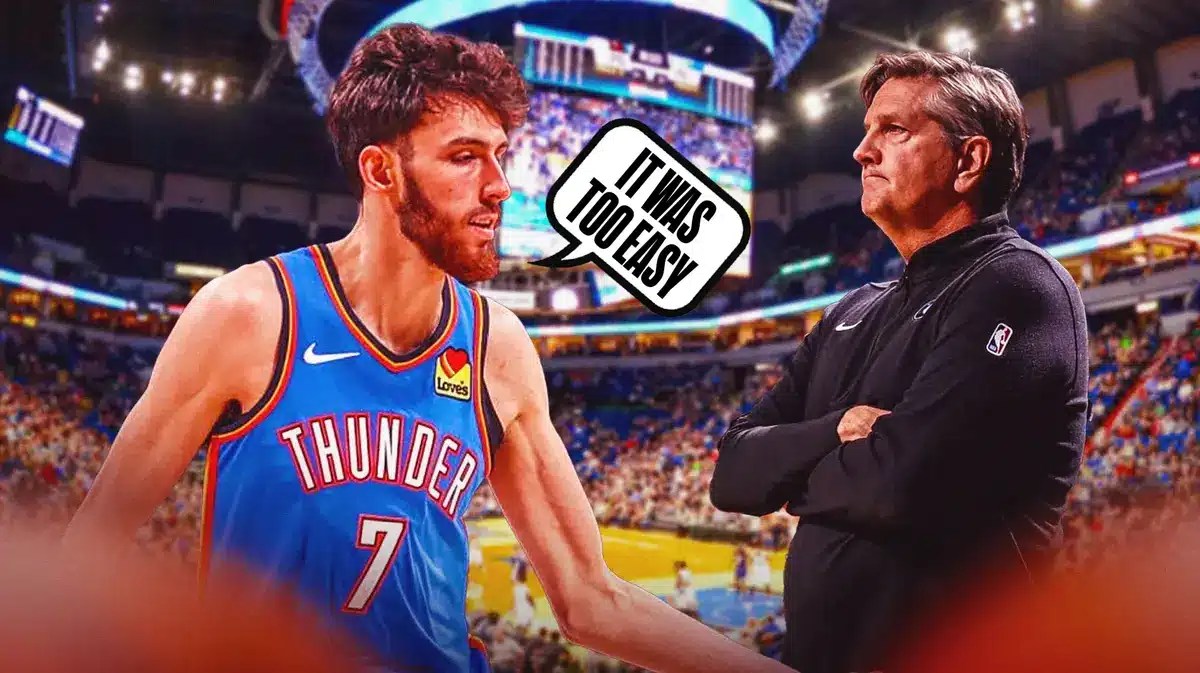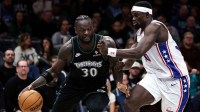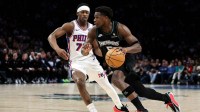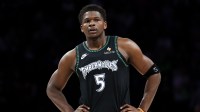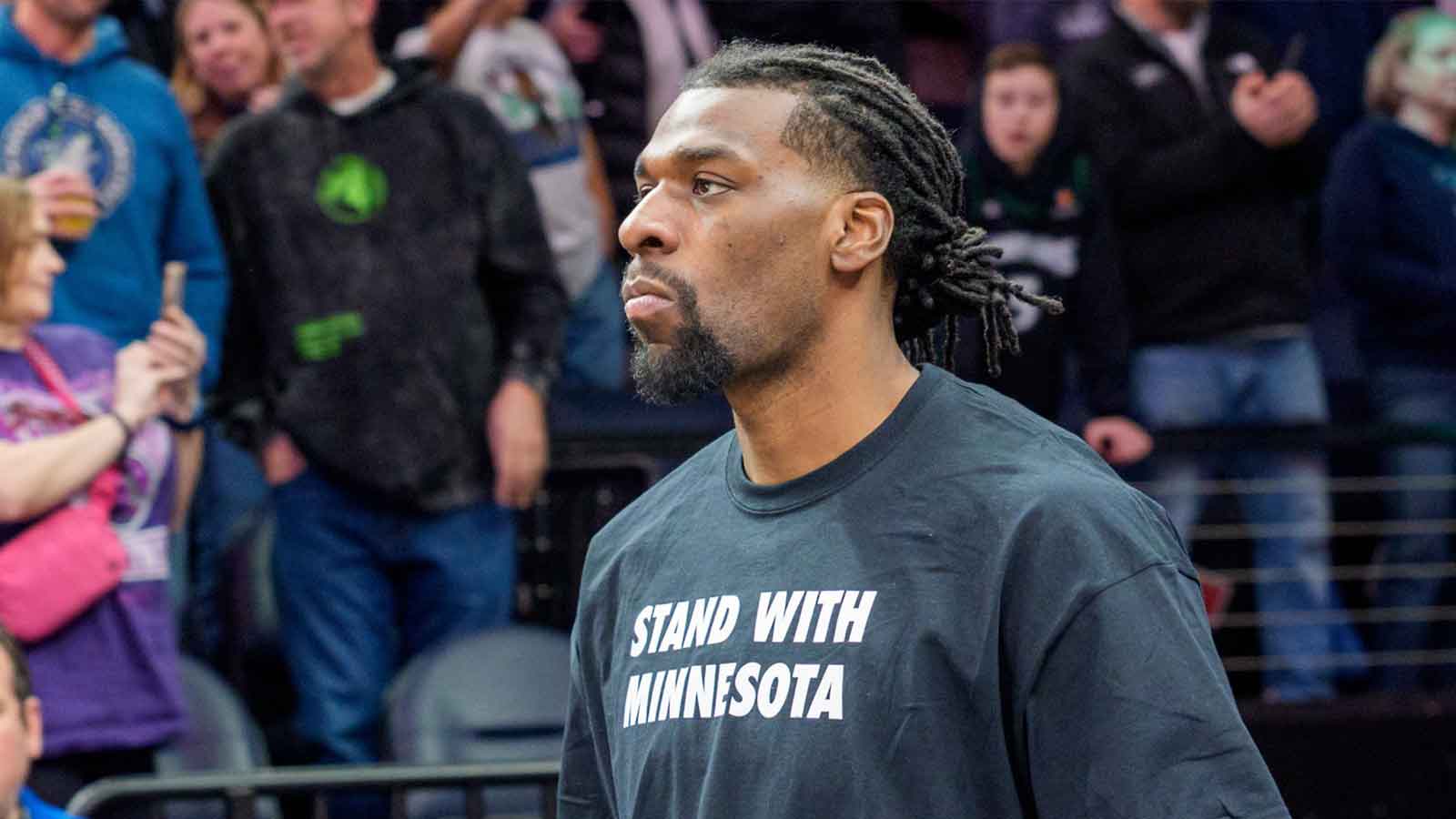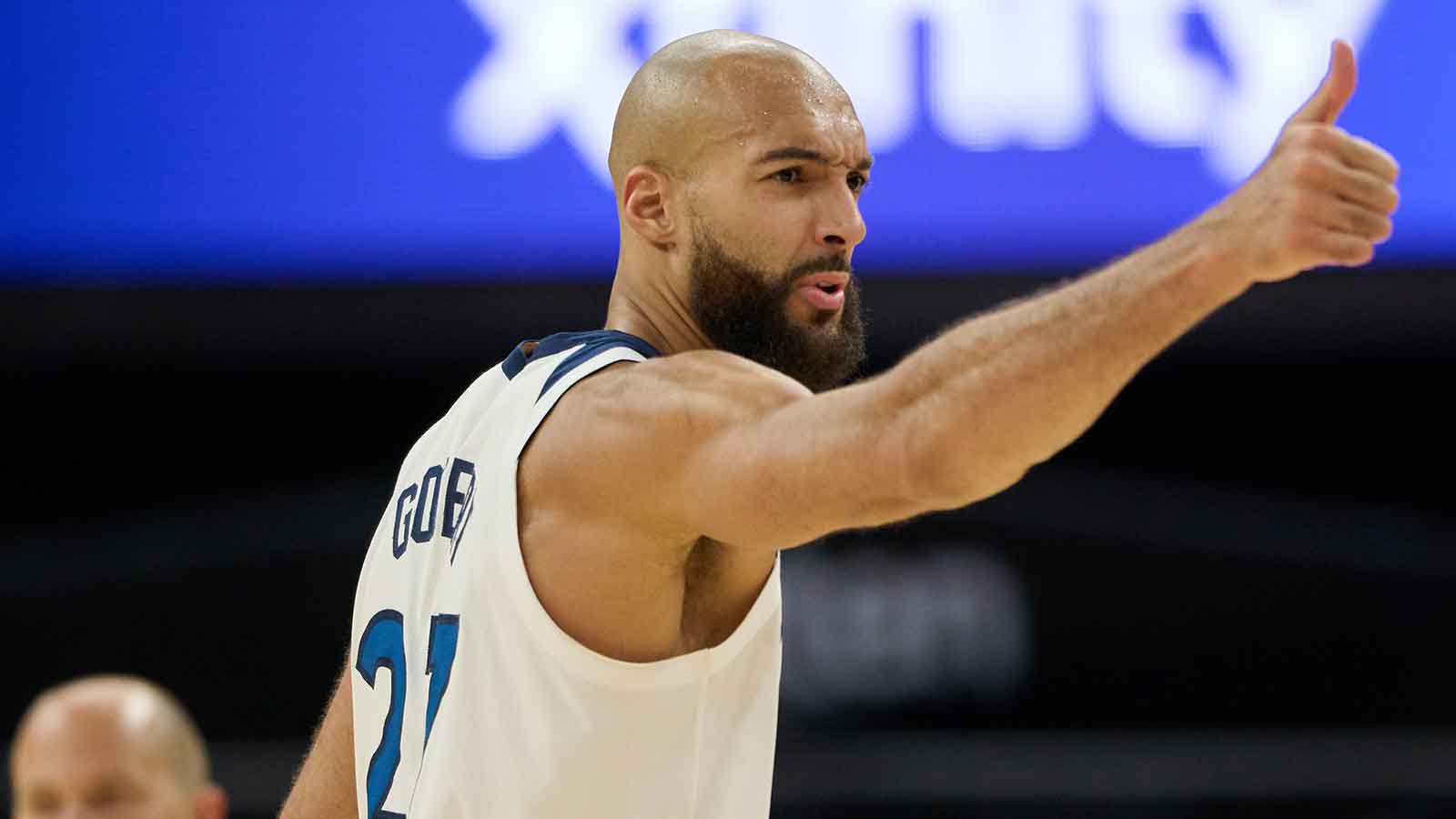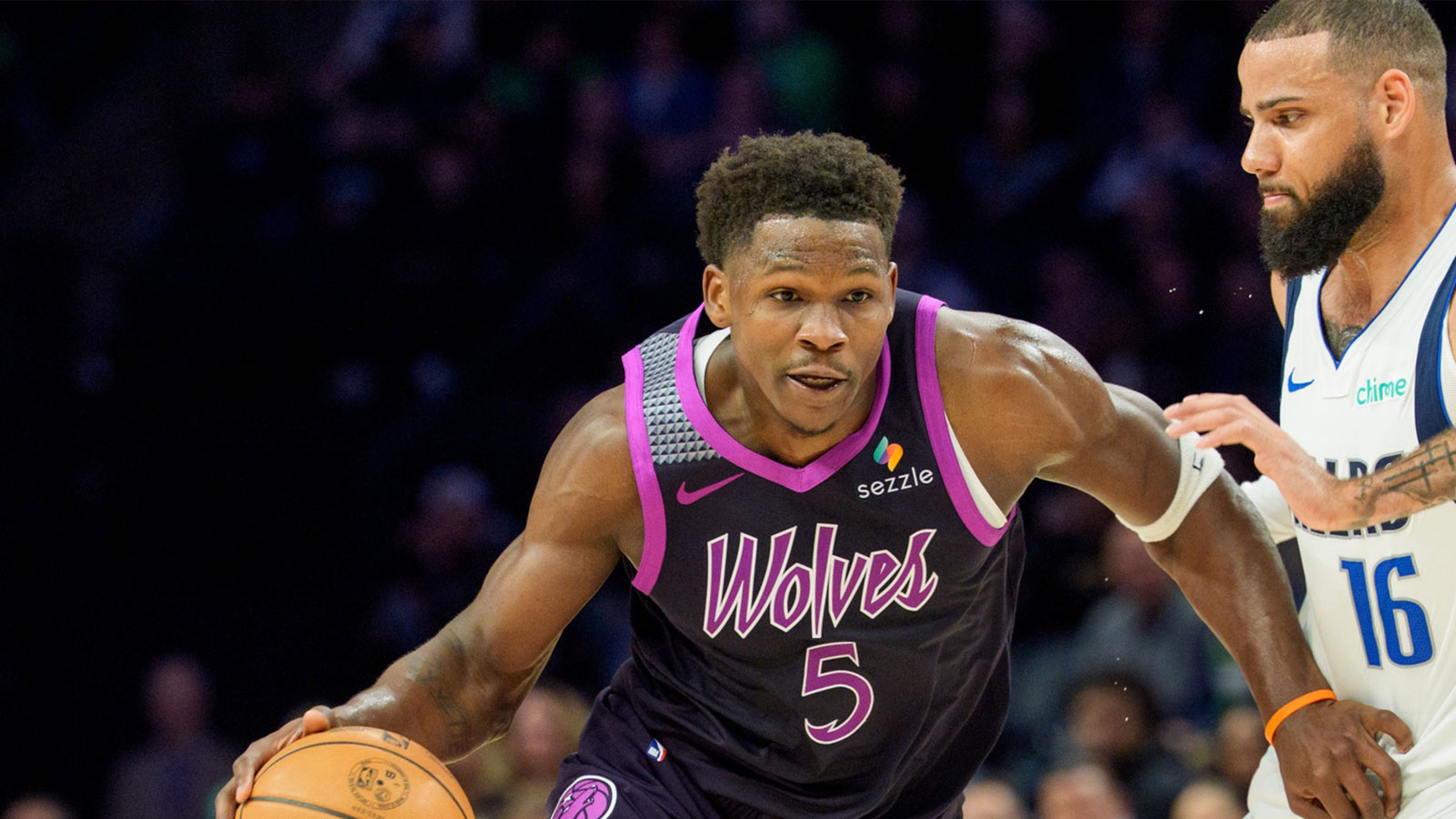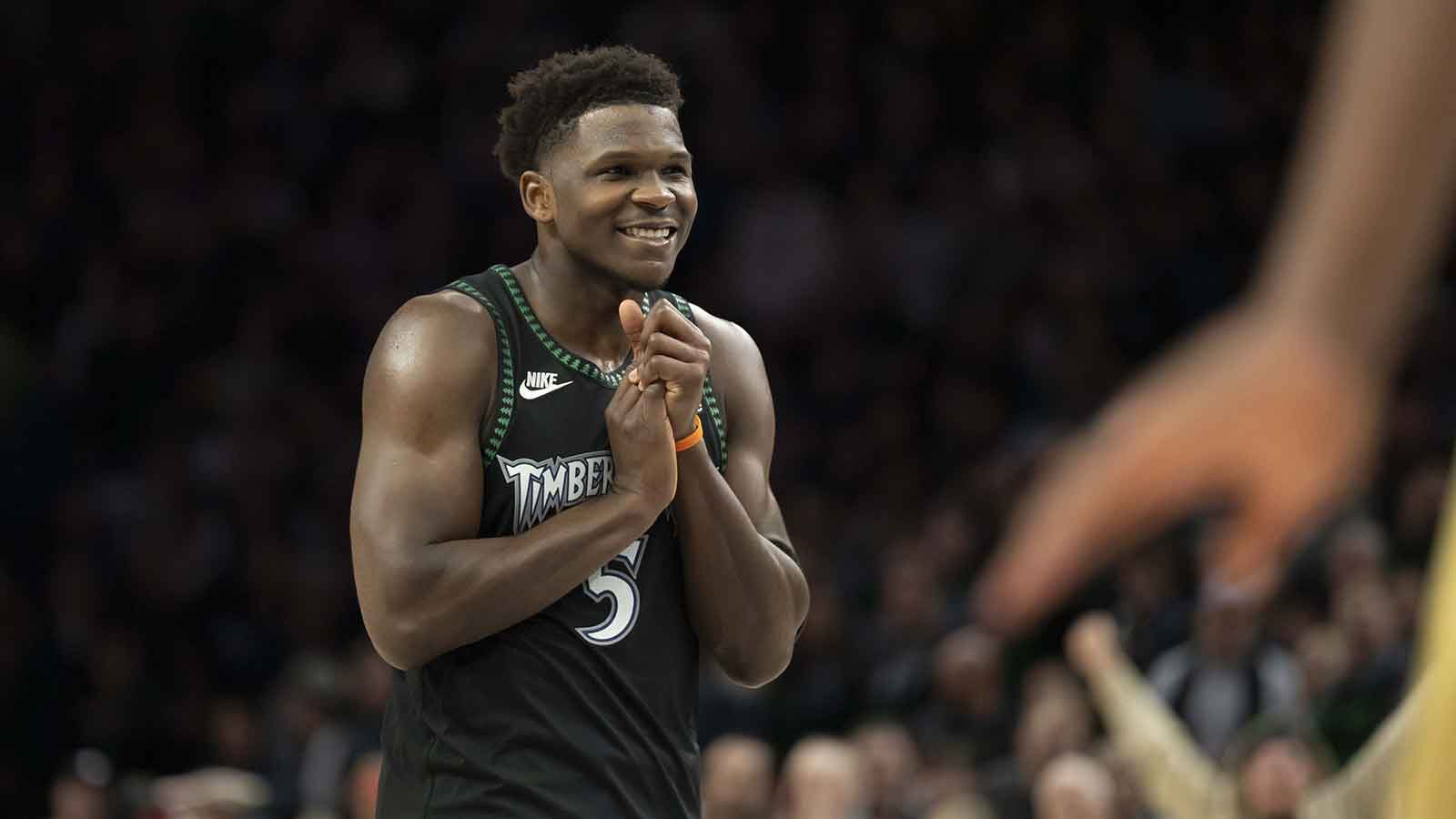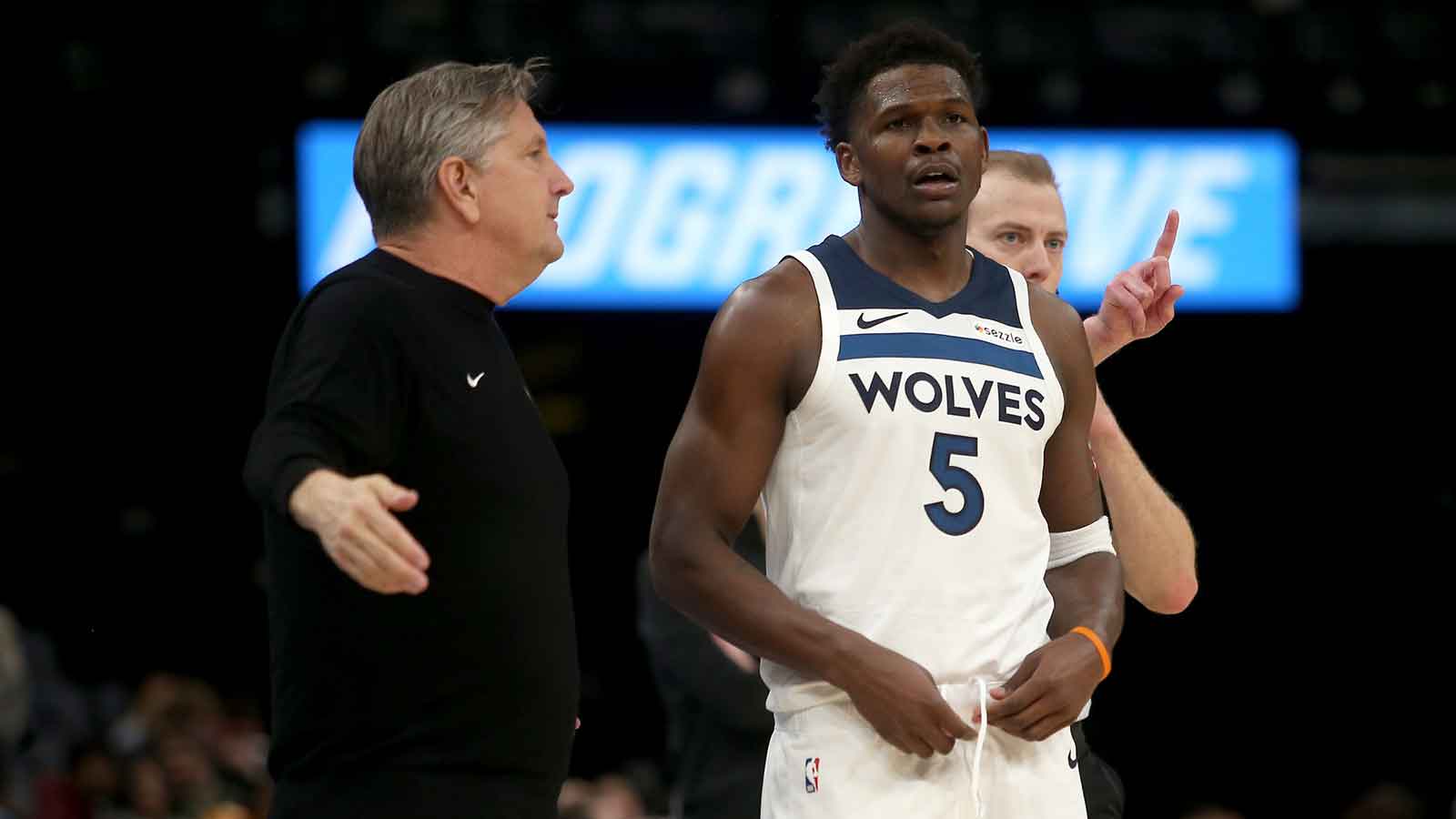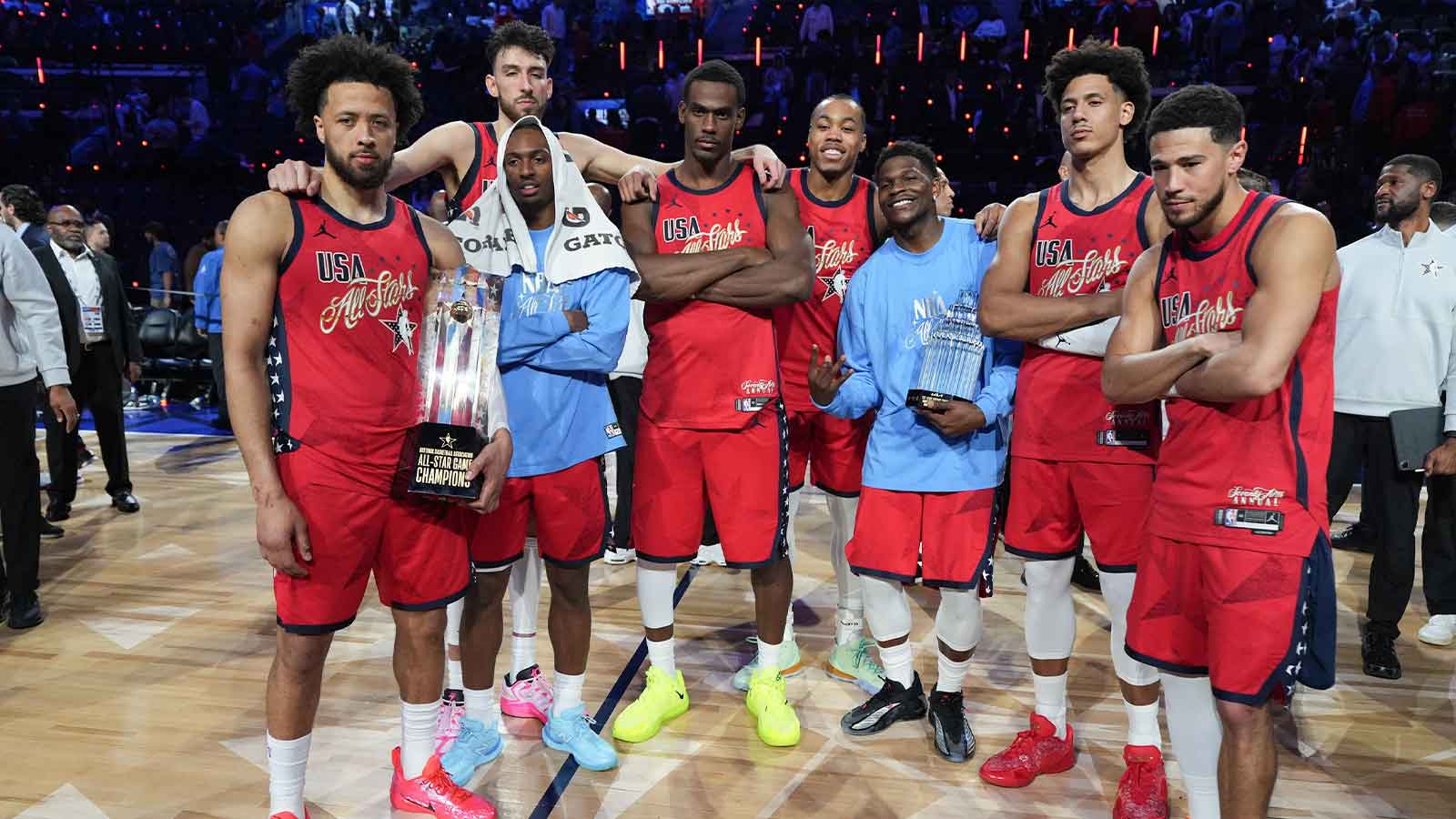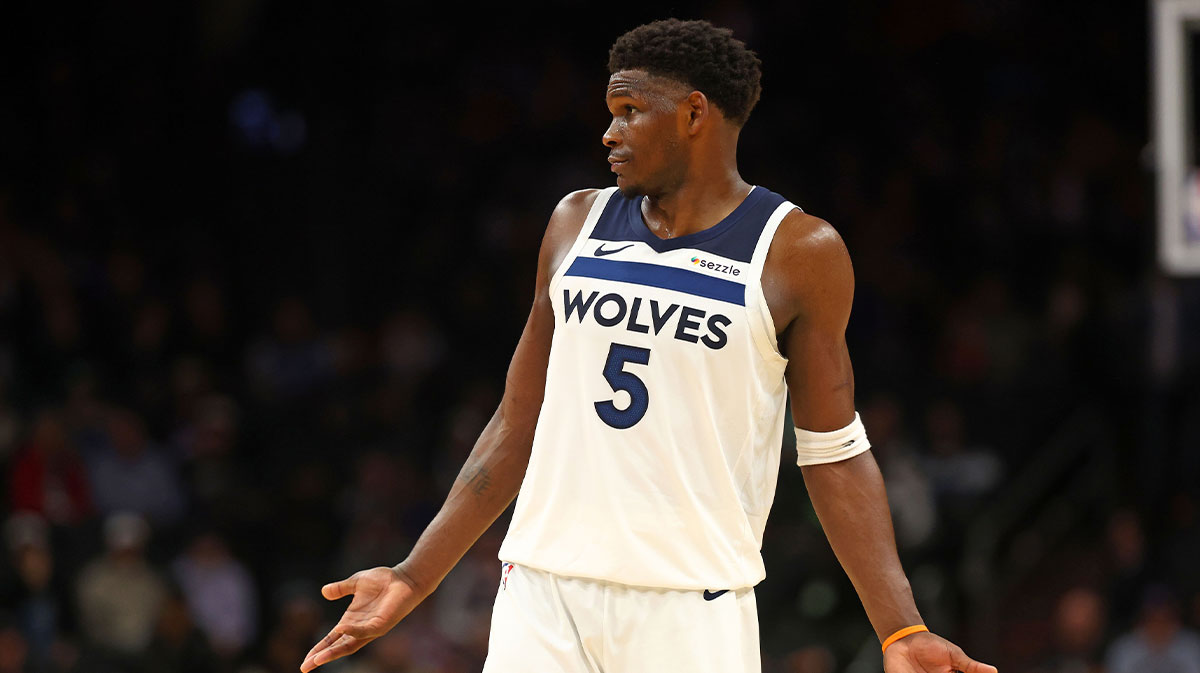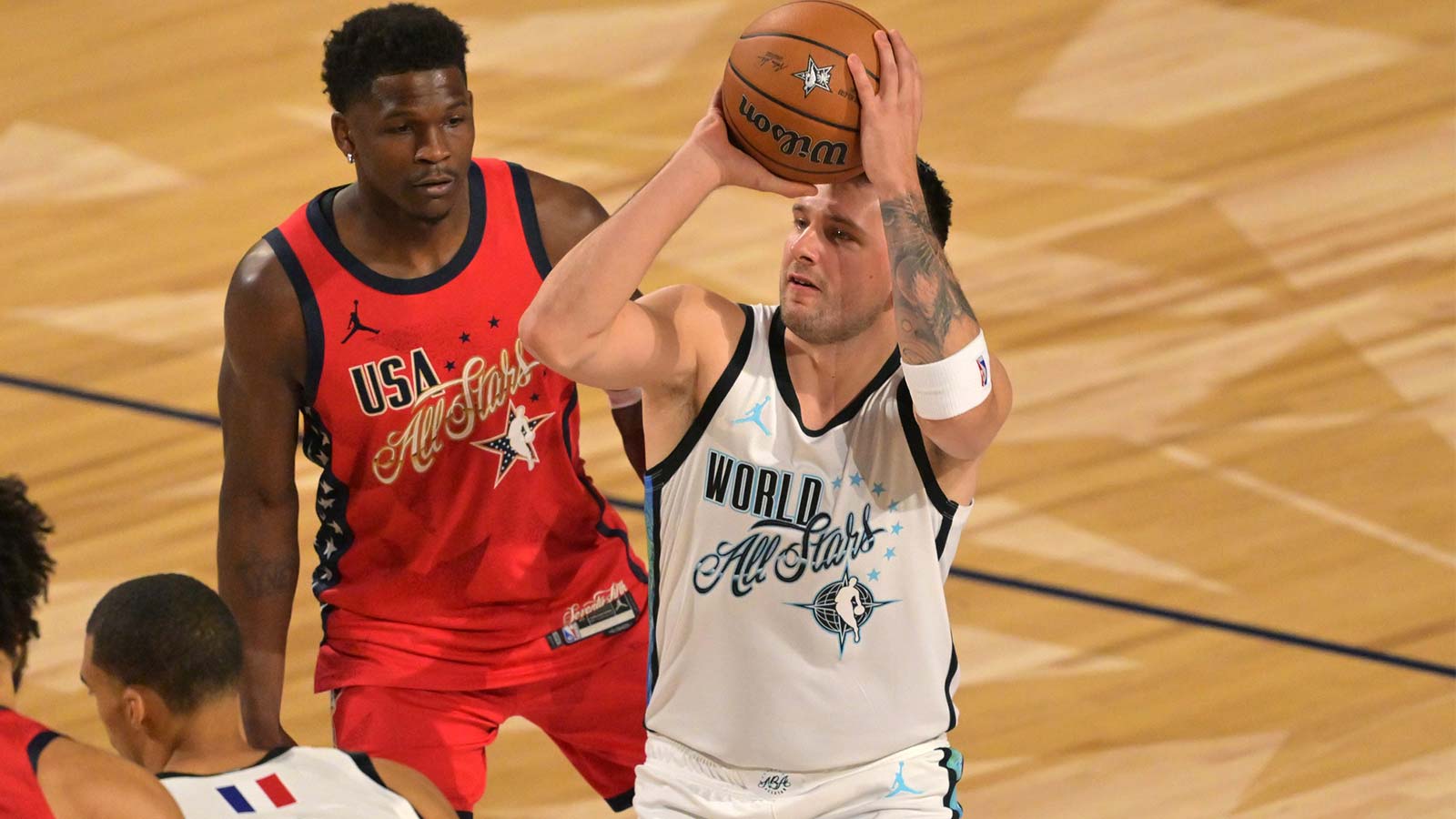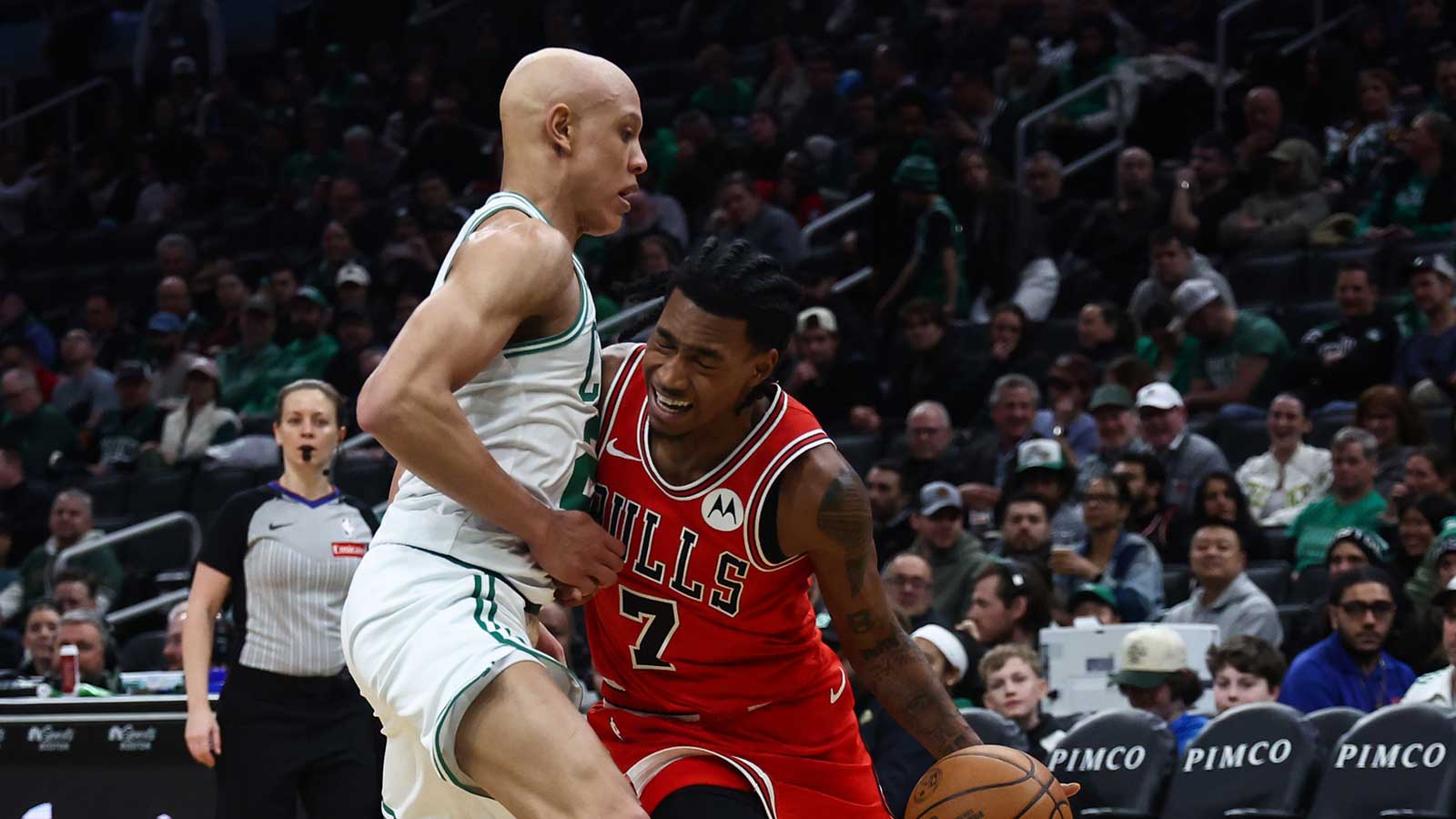The Minnesota Timberwolves battled the Oklahoma City Thunder on Tuesday night. In a duel between two of the top teams in the Western Conference, this matchup never disappoints. Two teams built stylistically different pose serious challenges to the other. Minnesota’s immense size, rebounding and defensive prowess control the game in ways Oklahoma City simply cannot. In contrast, the Thunder’s quickness, pace and perimeter spacing stretches out the Timberwolves’ defense and creates opportunities for cuts, drives and kick out chances. This difference in style made a matchup like this even more interesting. Let’s analyze major takeaways from the Timberwolves’ 129-106 loss to the Thunder.
First half disappointment
In the first half, both teams flexed their strengths in a close battle. The Thunder took a 66-60 lead into halftime after shooting 57% from the field as a team and nailing nine first-half threes. Finding success through cuts, mismatches and perimeter shooting, the Thunder were led by star guard, Shai Gilgeous-Alexander. SGA poured in 16 first half points to go along with six assists of OKC’s 21 first half dimes.
The Timberwolves, however, dominated the game in their own fashion. Minnesota efficiently found ways to score. Shooting 56% from the field and 54% from three helped keep the T-Wolves in the ball game in the first half. Their size and Anthony Edwards’ physicality powered Minnesota into shooting 19 free throws in the first 24 minutes of game time. Scoring 60 first half points, Minnesota should be happy with the way their offense performed early.
The disappointment however comes from the defensive end of the floor. The Wolves’ defense typically tightens up significantly in the second half of games, a common theme this season. That may be some cause for concern. The Wolves’ top assistant coach, Micah Nori, had this to say about the Wolves’ first half defense, “Well, obviously the Grinch wasn’t too interested in Christmas this year. He decided to steal our defense in the first half.”
Micah Nori with a great Grinch line 😂#RaisedByWolves // #NBA pic.twitter.com/BYLOSm5qsM
— Bally Sports North (@BallySportsNOR) December 27, 2023
The league’s best defense hasn’t quite there to start games. On average, the Timberwolves allow 55.9 points in the first half of games, a number that surely increased following OKC’s 66 first half-points on Tuesday night. Comparatively, the Wolves allow just 50.4 points in the second half of games. That five point difference doesn’t sound like a big deal, but it is. The parity in today’s NBA means every point matters. On a night like Tuesday, poor starts against teams that catch fire quickly puts you behind the eight-ball early. While Minnesota has typically been fantastic at closing out games, an emphasis on starting games better could really turn the Wolves into a serious powerhouse.
Poor ball contain leads to easy OKC offense

The same flaw that often left the Utah Jazz exposed during the Donovan Mitchell – Rudy Gobert era has, on occasion, hurt the Wolves in a big way this season. Oklahoma City came into the game as the top dribble drive team in the NBA. Averaging over 60 drives per game, the Thunder live off of beating the initial point of attack defender. Off the dribble, the job becomes very easy for the Thunder’s collection of talented playmakers. Score if able, otherwise capitalize on the spacing and kick it out for open looks or more drives off the catch. Gilgeous-Alexander is the complete embodiment of this system with his ability to place pressure on help defenders.
First his scoring overwhelmed Minnesota all night long. The Thunder were devastating in the pick and roll and a big reason why stems from the Wolves’ pick and roll coverage. OKC’s big men being able to pop out to the perimeter made Minnesota’s guards choose between chasing SGA downhill or staying up top with the screener. Often choosing the latter, Minnesota left Shai essentially playing one-on-one with Gobert in drop coverage. While Gobert is an elite defender, and perhaps the favorite for DPOY, SGA’s touch, decisiveness and handle left him scoring more often than not as an attacker. Finishing with 34 points and nine assists, Shai dominated the game from start to finish.
When Minnesota did commit extra help on drives, Mark Daigneult’s squad is well-trained to punish this with kick outs. The Thunder turned good closeouts and rotations into more dribble drives. The truly deadly possessions concluded with open catch and shoot looks. OKC drilled 18 three pointers on the night, resulting in 54 points.
SGA walks into the teeth of the defense and makes an easy kick against the Wolves zone pic.twitter.com/Jubo87CxCd
— Sheldon Wohlman (@3swohlman) December 27, 2023
This Wolves’ loss felt eerily similar to their defeat during Group Play earlier this year against the Sacramento Kings. Poor ball contain resulting in easy finishes or wide open kick out triples. While Tuesday night was a disappointing outcome, it’s important to remember it’s an 82-game season. Now with a 22-7 record, Minnesota still has a stronghold of the top spot in the Western Conference. With a better approach at the start of games, Minnesota should still like their odds against any other team on any given night in the association.

